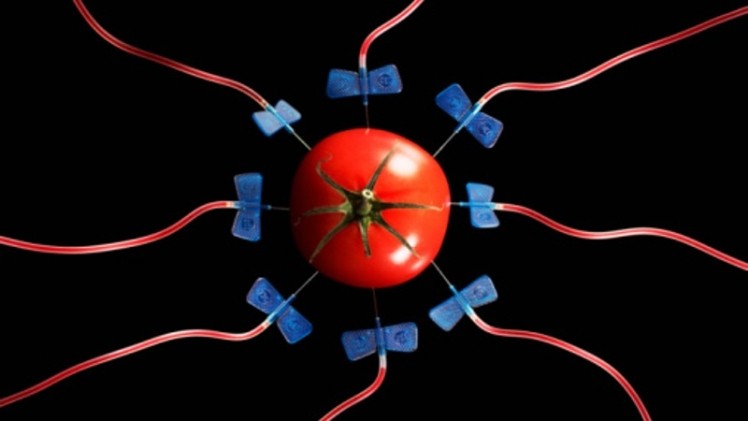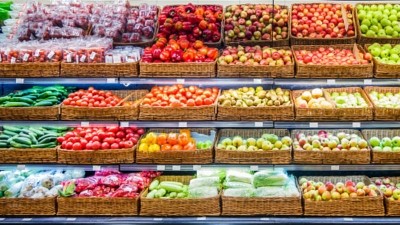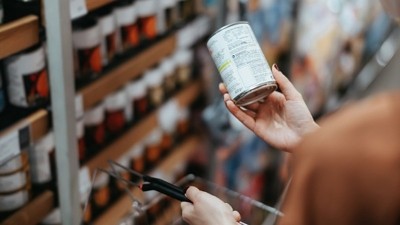Clear and present labels: Thailand mandates GMO declarations in latest food labelling regulatory update

Previously, Thailand did not have specific regulations in place to govern the labelling of genetically modified ingredients on food product packages, but recently the Thai Ministry of Public Health announced that all food manufacturers handling GM products must now declare their use of these on their labels.
“The clear statement ‘genetically modified’ must be declared alongside the food name on the label if the product contains only one ingredient, and if it uses multiple such ingredients these must also be clearly declared accordingly alongside each ingredient,” Thailand Deputy Minister of Public Health Dr Satit Pitutecha said via a formal statement.
“The food labels must also display the statement ‘[Name of food/product] produced from genetically modified [Type of plant/animal/microorganism] for products made using GM plants, animals or microorganisms.
“The text for these declarations must be bolded and clear, and printed in a colour that clearly contrasts with the base colour of the actual label background, [such as] black letters on a yellow background.”
In addition, Thailand has now banned firms from declaring that their food products do not contain GM components, seemingly in order to prevent biased perceptions against food products in general.
“Food companies are also not allowed to use the words ‘GMO-free food’, ‘non-modified food’, ‘does not contain components of genetically modified food’, ‘GMO ingredients have been excluded’, or any other similar text or symbols on all food labels,” added Pitutecha.
“This is in order to prevent consumers from misunderstanding or having misconceptions regarding the content and labelling of all general food items [within Thailand’s] national food supply.”
The agency has however made some exceptions to this these regulations for the moment, namely for companies that can provide traceability evidence from a traceability system that can prove that no GM ingredients are used in production; small producers that sell directly to consumers; food products that can prove use of GM organisms has not left any GM proteins or remaining GM components in the final product; and the use GM proteins solely as an aid for manufacturing.
The new GM food labelling regulations are expected to come into effect and firms will undergo enforcement from October this year.
GM regulations in the spotlight
The Thai government is not the only governing body to have made changes to GM food laws recently – earlier this year, Japan also implemented tougher regulations on GM foods in the country, with purported plans for a national ‘non-GM’ labelling system update in 2023.
Japan enforced mandatory GM labelling under strict standards for 33 major product categories made using the nine major agricultural products at ‘high-risk’ for being genetically modified, namely soy, corn, potatoes, rapeseed, cottonseed, alfalfa, sugar beet, papaya and mustard greens.
The 33 product categories were extremely thorough, covering just about every possible food product that could be made from the nine agricultural crops such as tofu, potato chips, corn snacks, soya milk and so on.
“If in processed foods the use of detection technology that has been determined by technical experts does not yield any traces of genetically modified DNA or relevant proteins, the manufacturers will not be obligated to include GM labels as there is no scientific difference in quality between these and regular products,” said Japan’s Consumer Affairs Agency in a statement.
The question remains as to whether Japan is looking to make things harder for GM foods to become a major part of the local food supply by giving food manufacturers strict standards to conform to or it is just laying down a solid foundation for GM foods to become a more mainstream source of food moving forward.
But where any of Japan’s motivations for slowly but strategically inching GM foods into the food supply would mostly be linked to food security as its food self-sufficiency rate has been seen to drop on a yearly basis since the 1960s, it is unlikely that the same would apply to Thailand as a primarily producer market.
The most major reason that Thailand would have to turn to GM foods would be true recognition of the potential of GM technology and the potential to help strengthen its ambition of becoming Asia’s centre of biotechnology.
It is also an open secret that GM crops such as papayas and corn are all over the market in Thailand, with farmers sometimes not even being aware of these and others choosing to continue planting these even when they find out due to better disease or weather resistance properties.
However, Thailand has also had some tough experience with this technology, from having to ban the release of all GM crops into the environment back in 2001 in relation to Monsanto trials, to rising export failures around 2012 when anti-GMO markets such as the EU reported GM contamination and introduced additional trade restrictions for Thailand.
So at this stage, it does appear that Thailand’s decision is based on caution, and with the implementation of compulsory labelling as its first major step.















